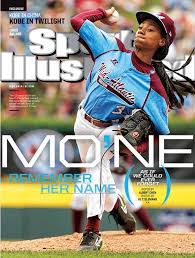The Wizard of Oz Dons
‘The Emperor’s New Clothes’
 I’ll let you evaluate what I’m about to write based upon which side of the Woke spectrum your views fall, but few observers of any political persusasion think Joe Biden aced his first debate of the 2024 presidential campaign. In fact, the universal verdict seems to fall somewhere between professional embarassment and dementia.
I’ll let you evaluate what I’m about to write based upon which side of the Woke spectrum your views fall, but few observers of any political persusasion think Joe Biden aced his first debate of the 2024 presidential campaign. In fact, the universal verdict seems to fall somewhere between professional embarassment and dementia.
To me, the spectacle brought forth recollections of two literary classics. You can choose whether the president or the nation’s predominant (left-obsessed) media fall into which one. The first literary reference I drew from the debate was to Hans Christian Andersen’s “The Emperor’s New Clothes,” wherein a vain ruler hires tailors who create imaginary clothes to update his wardrobe, the results of which he wears in public. The public goes along until a child (leave it to the mouths of babes) blurts out that “the emperor has no clothes.”
The other literary touchpoint is “The Wonderful Wizard of Oz,” which became a Judy Garland-starring movie titled “The Wizard of Oz.” This children’s tale by L. Frank Baum consists of several characters, many of them being the creation of the fictional Wizard himself, who ruled over Oz, or what was also called The Emerald City. Toward the end of the story, the Wizard is exposed as a phony and his creations — the Tin Woodman, the Lion, the Witches and the Scarecrow — are revealed as likewise.
As I mentioned earlier, both Joe Biden and the nation’s media masters could fall into either or both tales/camps. I guess we will have to leave it to Judy Garland to find the answer for us somewhere “Over the Rainbow.”


 Recent studies (see today’s Wall Street Journal) affirm that, in the U.S., those states and communities that locked down the hardest ended up killing off the most people by percentage of population, while those that did the least lost the least. Hmmmmm….
Recent studies (see today’s Wall Street Journal) affirm that, in the U.S., those states and communities that locked down the hardest ended up killing off the most people by percentage of population, while those that did the least lost the least. Hmmmmm…. Conditional “if” clauses always take the plural form. (I know, some jackass out there will find some web reference disputing this, but he, she, it and they will be wrong.)
Conditional “if” clauses always take the plural form. (I know, some jackass out there will find some web reference disputing this, but he, she, it and they will be wrong.)

 According to Wikipedia, a shibboleth is “any custom or tradition, usually a choice of phrasing or even a single word, that distinguishes one group of people from another. Shibboleths have been used throughout history in many societies as passwords, simple ways of self-identification, signaling loyalty and affinity, maintaining traditional segregation, or protecting from real or perceived threats.”
According to Wikipedia, a shibboleth is “any custom or tradition, usually a choice of phrasing or even a single word, that distinguishes one group of people from another. Shibboleths have been used throughout history in many societies as passwords, simple ways of self-identification, signaling loyalty and affinity, maintaining traditional segregation, or protecting from real or perceived threats.”